Discover Agent Beta: see your competitors' winning ads, before you create
Beniamin Duca
Aug 12, 2025 - 4 min read
Creatopy is now The Brief. Read the full note from our CEO, Tammy Nam.
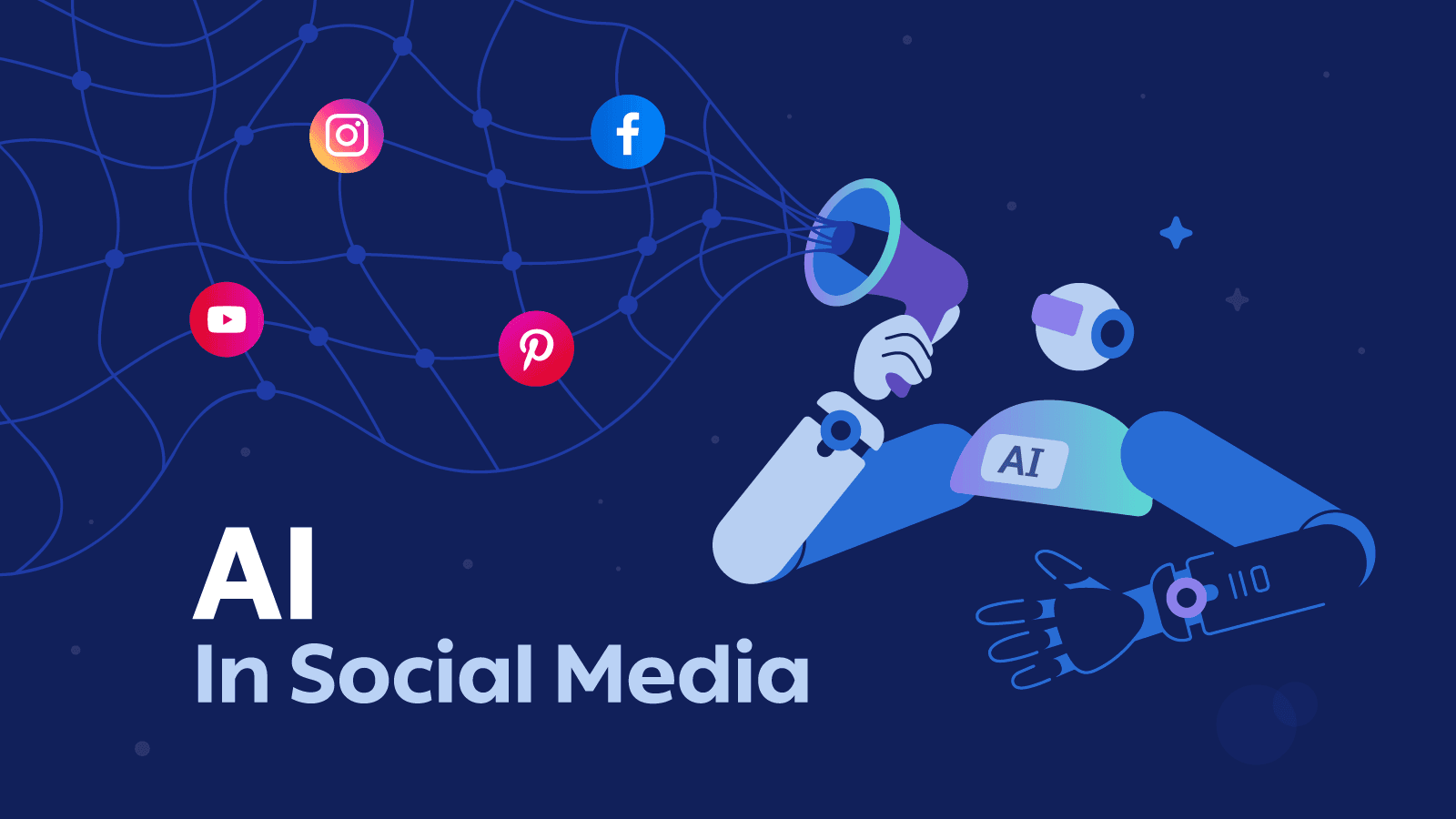
AI is already changing the world as we know it, especially when it comes to social media. Now, it’s easier than ever for brands to connect with their audiences, and use AI technology to improve marketing efforts and drive results.
In today’s article, we’ll talk about the uses of AI in social media and how to leverage it to take your business to the next level.
A. What is AI in social media?
B. How is AI used in social media?
C. How does AI impact social media?
From collecting customer data through research to tending to customers' needs via chatbots or creating content, AI technology has become the co-pilot of many social media teams.
The impact of AI on social media is clearly visible at many levels. AI helps marketers build a data-driven social media strategy, and offer a more personalized customer experience. It also powers social media graphic design, enabling you to craft eye-catching visuals that align with each platform’s unique style and your brand identity.
According to a recent HubSpot report:
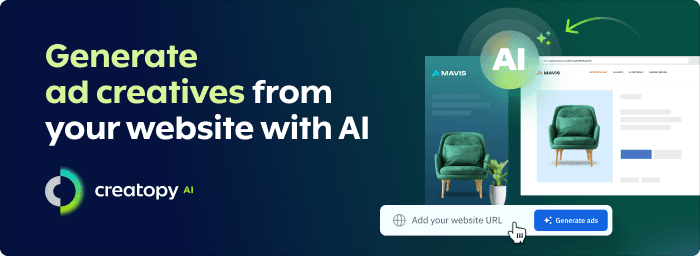
AI in social media refers to the integration of artificial intelligence technologies and techniques in various aspects of social media platforms and marketing strategies. These applications of AI can include content recommendations, chatbots, sentiment analysis, content generation, data analytics, ad targeting, and more.
Busy social media managers often turn to their best assistants, AI content tools, for content generation whenever they feel overwhelmed with tasks or simply need some inspiration. Using generative AI software, marketers can create captions for their posts which can be used as they are, as drafts, or just as a source of inspiration.
Have a look at these incredible Instagram captions that Writesonic gave me for a simple topic like ice cream. The tone is human and friendly. Could you have guessed they were actually generated by artificial intelligence? Personally, I was very impressed.
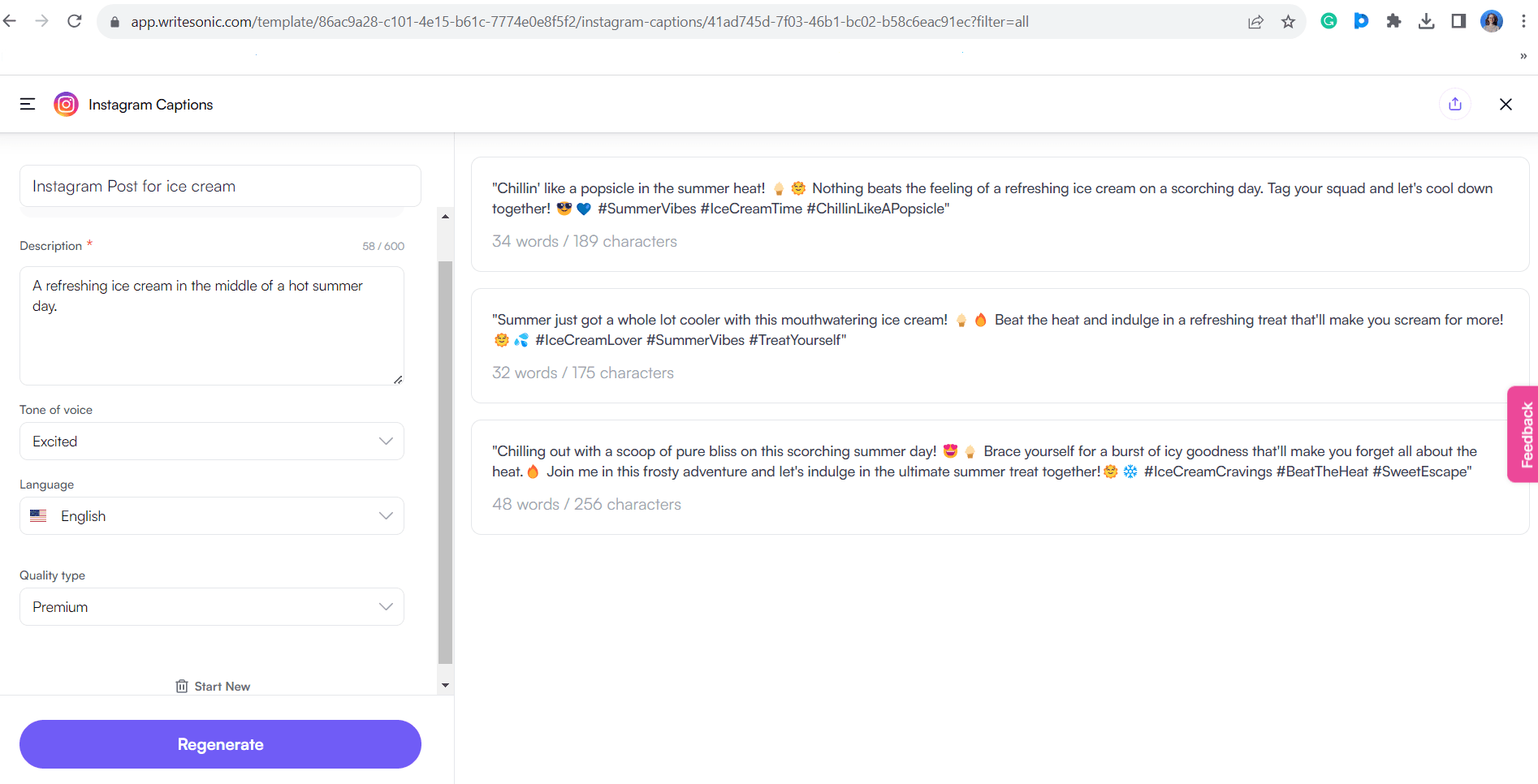
Here are some of the best AI text generator tools you can try:
Another challenge social media marketers face daily is finding high-quality images for their posts that are brand compliant and unique. But today, more marketers than ever create on-brand visuals with the help of AI design tools.
The visuals below are AI-generated images for a description I introduced in DreamStudio’s dashboard. You can literally create anything with AI text-to-image tools. Just imagine.
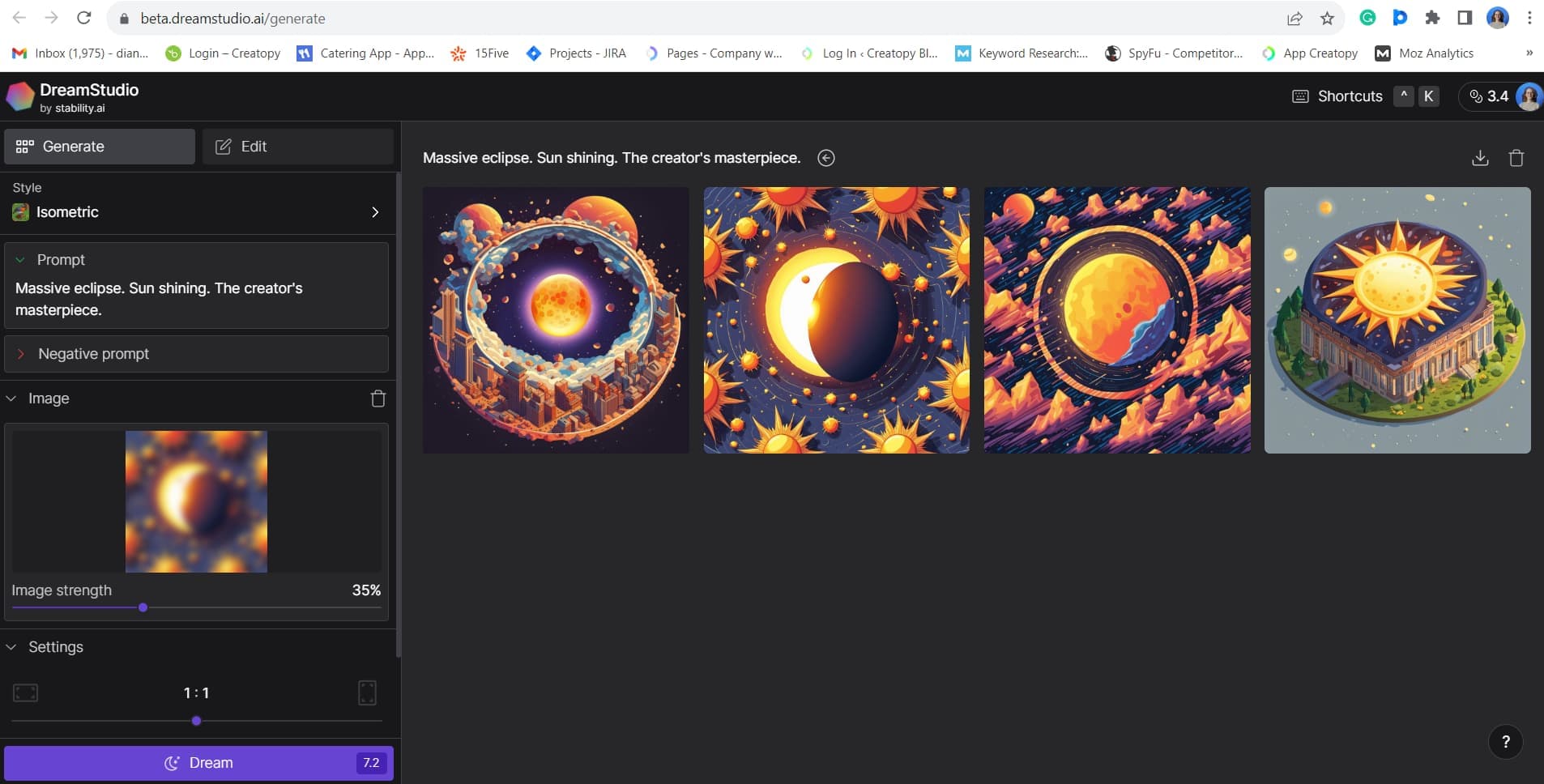
Here are some of the best AI picture generator tools you can try:
Content planning can be problematic when you’re out of inspiration. Luckily, AI content tools can help you overcome creative blocks.
By simply entering a keyword or a short description, the AI software will automatically generate new original ideas for social posts, videos, or blog posts.
Let’s look at this example from Writesonic. I went to the Social Media Content Plan in their dashboard and entered a short description of my objective: Content ideas for launching our new model of family car. Then, I selected the social networks. Here’s what the AI engine provided in terms of ideas.
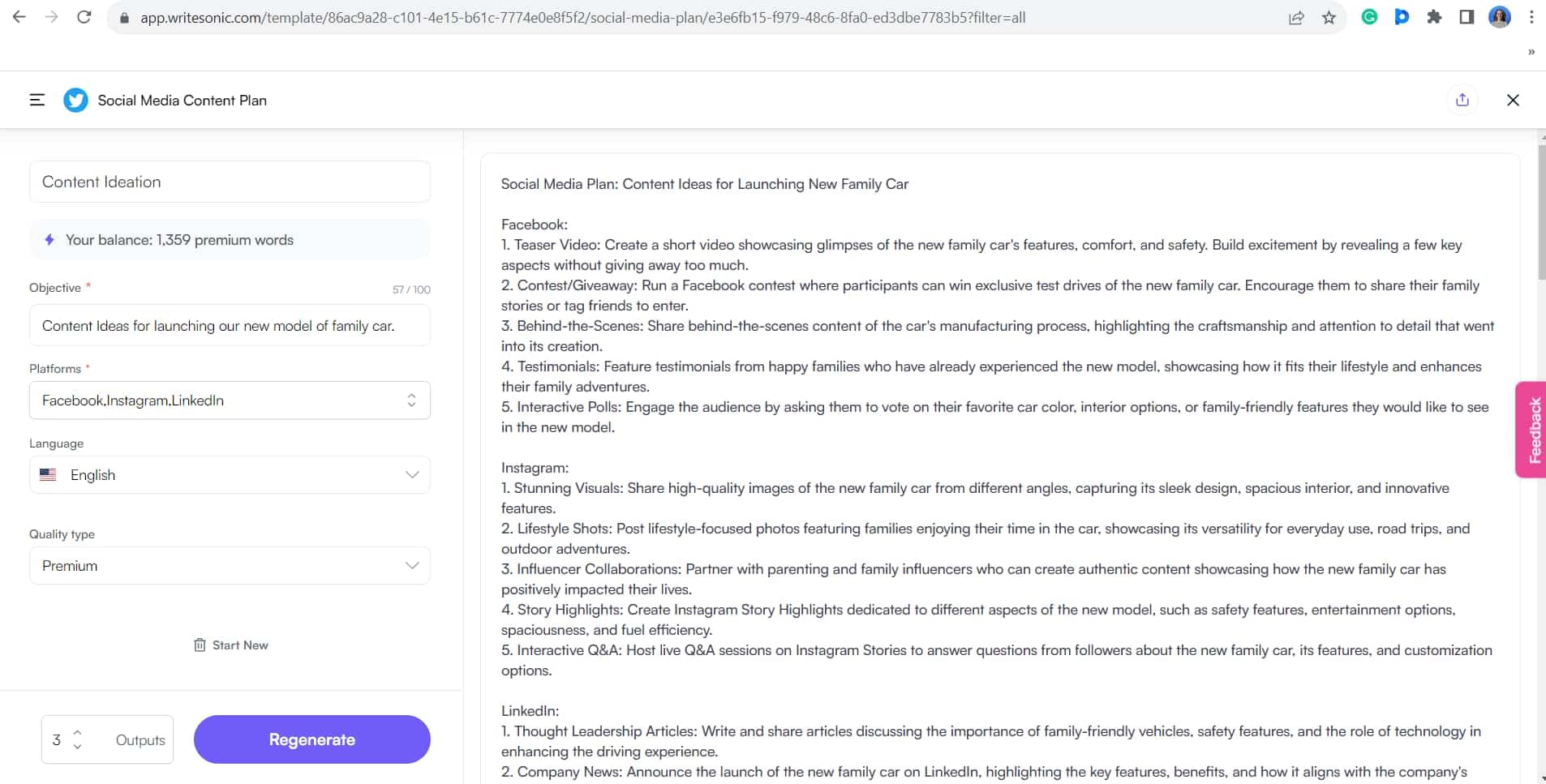
Check out some of the best AI content ideas tools:
Whether you’re a small business or a well-known corporation, there’s an influencer out there for your brand. From nano-influencers, counting no more than 10k followers to mega-influencers, with more than 1 million followers, there’s a niche for everyone.
But searching for the ideal influencer to match your brand could take forever. But you can be smart about it and use AI tools to discover the best influencers in the industry, connect with them, vet them for proven results, and track campaigns as they unfold.
Latest studies show that 93% of marketers have used influencer marketing as part of their digital strategy.

Here are some of the best AI influencer marketing tools to try:
Brand reputation is one key aspect of a company’s digital efforts.
Today, marketers can scan digital content and identify customer feelings using AI sentiment analysis tools.
The sentiment monitoring software uses machine learning and natural language processing (NLP) techniques to automatically analyze and classify the type of emotion that is behind a body of text. They provide valuable data such as customer insights, competitor sentiment analysis, can help build a brand’s positive reputation, and manage potential crises before they surface.
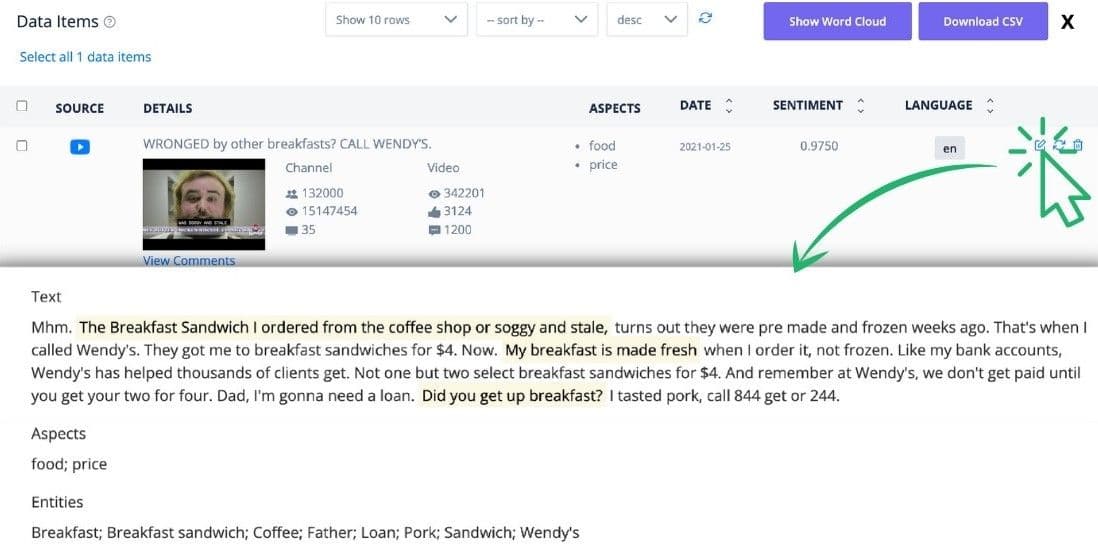
Source: Repustate
Here are some of the best tools for sentiment analysis:
Even the most experienced social media managers may need a little help sometimes.
With an AI social media tool specialized in customer research and brand monitoring, it can be easier to build a data-driven social media strategy.
AI platforms can help you collect valuable customer insights, analyze them, and provide recommendations for the best content type to publish, best time to post, and which social channels to use to reach and engage your audience.

Source: Brandwatch
Here are some of the best AI tools for social media strategy:
Social media ad campaigns can get quite complex and often overwhelming. From ad design to setting the right target audience, a social media campaign can keep the whole social team busy for days and sometimes even weeks.
But with the right AI social media tools for advertising campaigns, you get more time to create stellar content while delivering high-converting ads.
Here’s how an AI tool can help:
Below is a screenshot of The Brief’s dashboard showing sets of ready-made templates for social media by network.
In The Brief, you can generate social media ad sets, in various sizes and formats, for each social network using customizable templates.
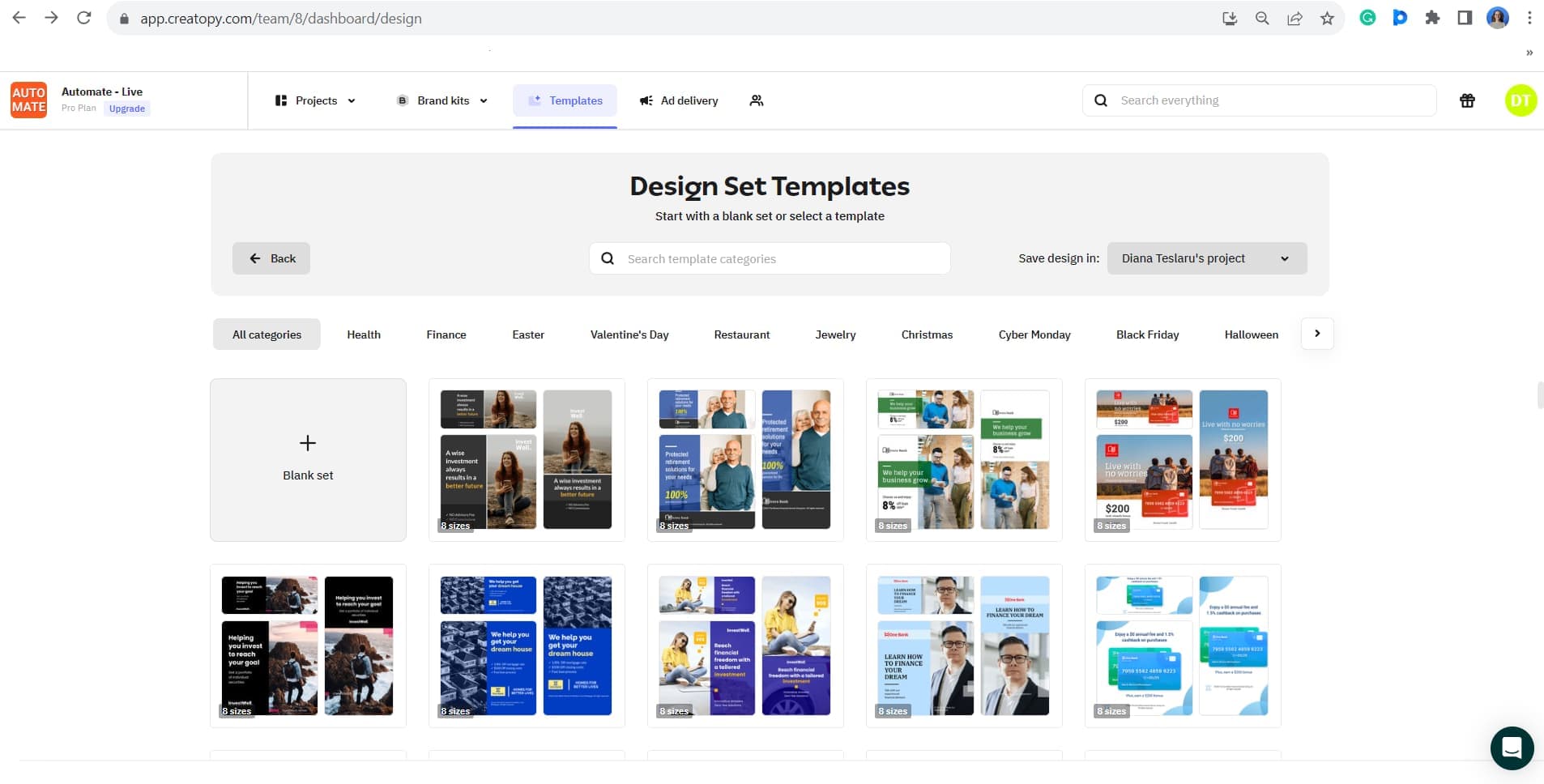
Here are some of the best AI tools for social media ad campaigns:
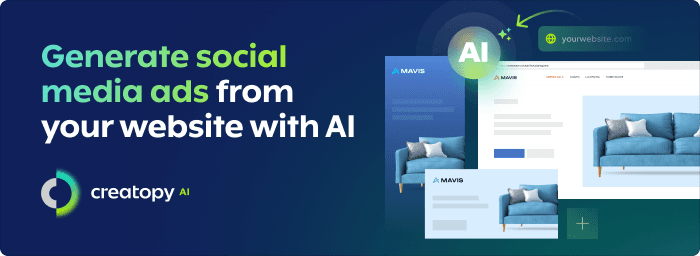
Artificial intelligence impacts social media on many levels, and there are clearly important benefits, but there are also some drawbacks. Let’s explore both sides of the coin.
AI can generate content and automate tedious tasks such as tracking and analyzing data, leaving marketers more time to focus on the creative process and strategy.
As we’ve seen, AI has already taken over much of the manual work, which took a long time when performed by humans. We have just invited AI to the table, but in the future, AI will likely take even more of our work and thus make substantial savings in a company’s budget.
AI social media tools extract valuable data insights like customer preferences and content engagement metrics to provide content creation and optimization recommendations.
AI tools are used to monitor campaign performance and identify customer sentiments which allow brands to optimize their content for maximum engagement.
AI social listening tools monitor a brand’s mentions across all social media channels, so companies can detect and address potential negative comments before they surface.
With the integration of chatbots in social inboxes, companies can now respond to customer inquiries 24/7 and provide a positive customer experience.
Reduced production costs and higher creative output can only result in a boost of return on investment for all the marketing efforts.
We’ve seen the many applications of AI technology in social media and acknowledged the benefits. But are there any concerns or threats related to artificial intelligence in social media?
Journalists Jonathan Haidt and Eric Schmidt at The Atlantic warn us that AI is about to make social media more toxic. From spreading misinformation to propagating unhealthy behaviors through the use of fake influencers, AI can be used for negative purposes, they say.
Let’s also explore the not to nice part of AI in social media marketing.
Chances are that we’re going to witness the world’s first comprehensive AI law by the end of 2023, which will be applied to the EU. But as of right now, there have been many cases of AI-powered technology used to spread misinformation or malicious content.
Until laws are implemented, UNESCO’s Recommendation on the Ethics of Artificial Intelligence acts as a guideline.
To this day, there are no copyright laws to regulate AI creations since AI is non-human.
For a long time, AI-generated works of art have been considered the creations of robotic artists as the result relied on the programmer's input, and the software was used like an instrument of creation (just as a brush or a canvas).
But with the recent advancements, AI marketing tools are no longer a tool since it makes its own creative decisions. However, it is not human, either. And, as far as we know, no country provides a copyright to a work created by a non-human.
The World Intellectual Property Organization (WIPO) sees two possible ways in which existing copyright law can deal with works where human interaction is minimal or non-existent. It can deny copyright protection for works that have been generated by a computer, or it can attribute authorship of works to the creator of the program. And the situation keeps getting even more ambiguous.
Until further changes, we will continue to see AI blurring the lines between human artwork and AI-generated art.
With AI in the hands of anyone, there’s no control over what’s real anymore.
A recent example of how misinformation can be spread globally on social media within just a few hours, is the release of some uncanny images showing former U.S. President Donald Trump being aggressively arrested by police. Allegedly, he was charged over payment of hush money to a woman he had an affair with. A closer analysis of the story and of the images revealed that they were 100% AI-created and used to tarnish the ex-president’s reputation.
You might have seen Pope Francis in a white puffer jacket or Tom Cruise jocking around on TikTok. They’re both AI-generated deep fakes.
The questions that naturally arise are, “How can we protect ourselves from being impersonated or falling for these deep fake lies?”, “How are we going to make the distinction between what’s real and what’s fake?”
Fortunately, there’s some good news. As the AI editing technology is evolving, so is the AI detecting technology. Adobe and Microsoft are working on a joint project to release a feature called the Content Credentials Button. This feature will act as a lie detector and will inform people about the whole life cycle of an image or video (the camera that took the photo/video, when it took them, the websites that displayed the picture/video). 900 more companies in the visual industry agreed to display the Content Credentials Button in order to make it easier for anyone to detect deep fakes.
If you haven’t stumbled upon an AI influencer so far, let me introduce you to Milla Sofia, a virtual influencer from Finland with a 16K followers base.
She is a gorgeous AI blonde girl posting bikini pictures of herself in holiday sceneries. Her posts get hundreds of reactions and comments, which means she is taken for real, though her bio clearly states that she is an AI creation. Not only does this AI influencer raise the bar for the already unrealistic beauty standards displayed on social media, but it also encourages fantasizing.
The most concerning part about this is the exposure of children and teenagers to such AI influencers that can result in negative behavior changes.
Exciting times are on the horizon. Marketers are starting to understand the importance of AI for social media and to use it at every stage.
Artificial intelligence is a force that changes the game completely because of its capacity to generate, automate, and predict.
Whether you want to use artificial intelligence to create better content for your social media pages, or to run advertising campaigns, make sure you choose the best tools.
The AI tools for social media marketing we suggested in this article have been tested and vetted from a long list of software. We only recommend the best-in-class AI social media tools.
Let's put these insights into action. Build, scale, and automate campaigns with AI-powered workflows.
Beniamin Duca
Aug 12, 2025 - 4 min read